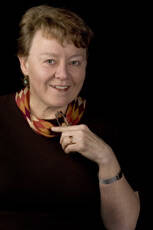The applause was polite but perfunctory as the first performer walked to center stage and sat down at the Steinway grand. Her slim profile, size 0 evening dress (I’m guessing) and long hair held back from her face by a sparkling clasp announced that this Chinese-American was a teenager or only slightly older. Her name, according to the program, was Audrey. She looked small and weak in relation to the large, weighty instrument that was opened up in front of her, until she relaxed her wrists and touched the keys. The moment the first chords of J. S. Bach’s “Prelude and Fugue in G-sharp Minor” from “The Well-Tempered Clavier Book II,” rolled out, she was in command.
We had come to the Weill Recital Hall at Carnegie Hall for the 77th Young Musicians Concert, sponsored by the Associated Music Teachers League. The program featured 17 young musicians in high school and college, winners of the league’s annual competition. The program itself was full of show-pieces, technically rigorous works by Mozart, Liszt, Chopin, Handel and Schumann and several composers new to me, all designed to impress. The performers, as is typical of this age range, varied widely in size and physical maturity, but they all played their instruments (piano, cello or voice) like adults.
This was a custom-made Mother’s Day event, though every father present, camcorder or camera in hand, must have felt it as an early Father’s Day, too. I attended the concert as the guest of a friend, whose eldest son, Daniel, a tall, handsome youth with Van Cliburn hair, played Claude Debussy’s “Arabesque No. 1.” His fluid fingering and clear tones caused the audience to applaud with foot-stomping gusto and even a few shouts when he stood for his bow. His achievement is all the more extraordinary because Daniel is blind.
The concert was a meaningful public display of the rewards of long-term, focused commitment and hard work, rewards that are found in the doing. Every musician who auditioned, not just the winners, has earned these rewards. Unwittingly, one musician even offered a visual metaphor for so much effort. As Emirhan bent over his cello, producing a resonance that wrapped the audience in warmth, three drops of sweat slid down the instrument’s wooden body, rivulets lit up like neon strands by the stage lights.
What we saw and heard at Carnegie Hall was not only the beauty of the music and the creativity exercised in interpreting it, but the passion of the young to make music, not just listen to it. Passion, even joy, was visible on the faces of these performers and audible in their playing and singing. And although most of the pieces were solos, behind every soloist is a family that has been willing to alter its schedule, budget and calendar for years on end to accommodate the budding musician. This realization moved me, too.
May and June mark many year-end celebrations of achievement, from recitals and championship games to graduations. It is a season of endings and beginnings, transitions in which family and friends can support the young, acknowledge their focus and sacrifices, and guide them toward the next life phase, whether college, employment, marriage or something else. It also works the other way round: the vigor and ardor of young people who achieve astounding feats encourage and console their elders. Hurrah for that.
By the end of the concert, I found myself pondering a delicious irony, given the number of Chinese-Americans who had performed: Perhaps the Chinese would save Western classical music, much as the Romans saved Greek art and the Irish “saved civilization”—the Chinese and all the other dedicated music students aflame with passion.









#1: I was unaware that Western Music needs saving in the first place.
#2: After reading Amy CHUA's "Batle Hymn of the TIGER MOTHER," if Chinese children and their parents save anything, it will be Western Music COMPETITIONS.
While I believe that the basic idea is out of Silicon Valley, Chinese contributions of composition and conducting are significant.